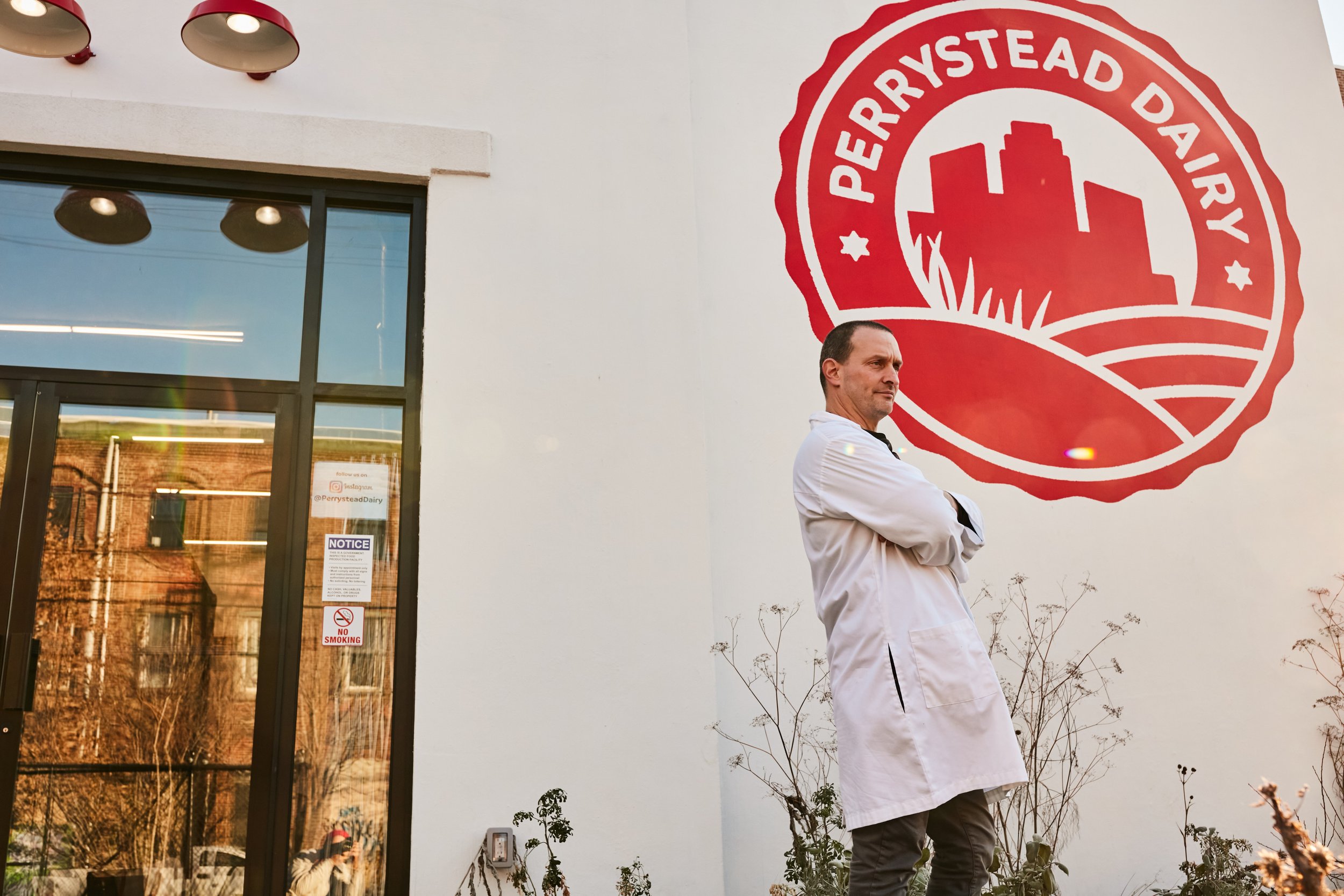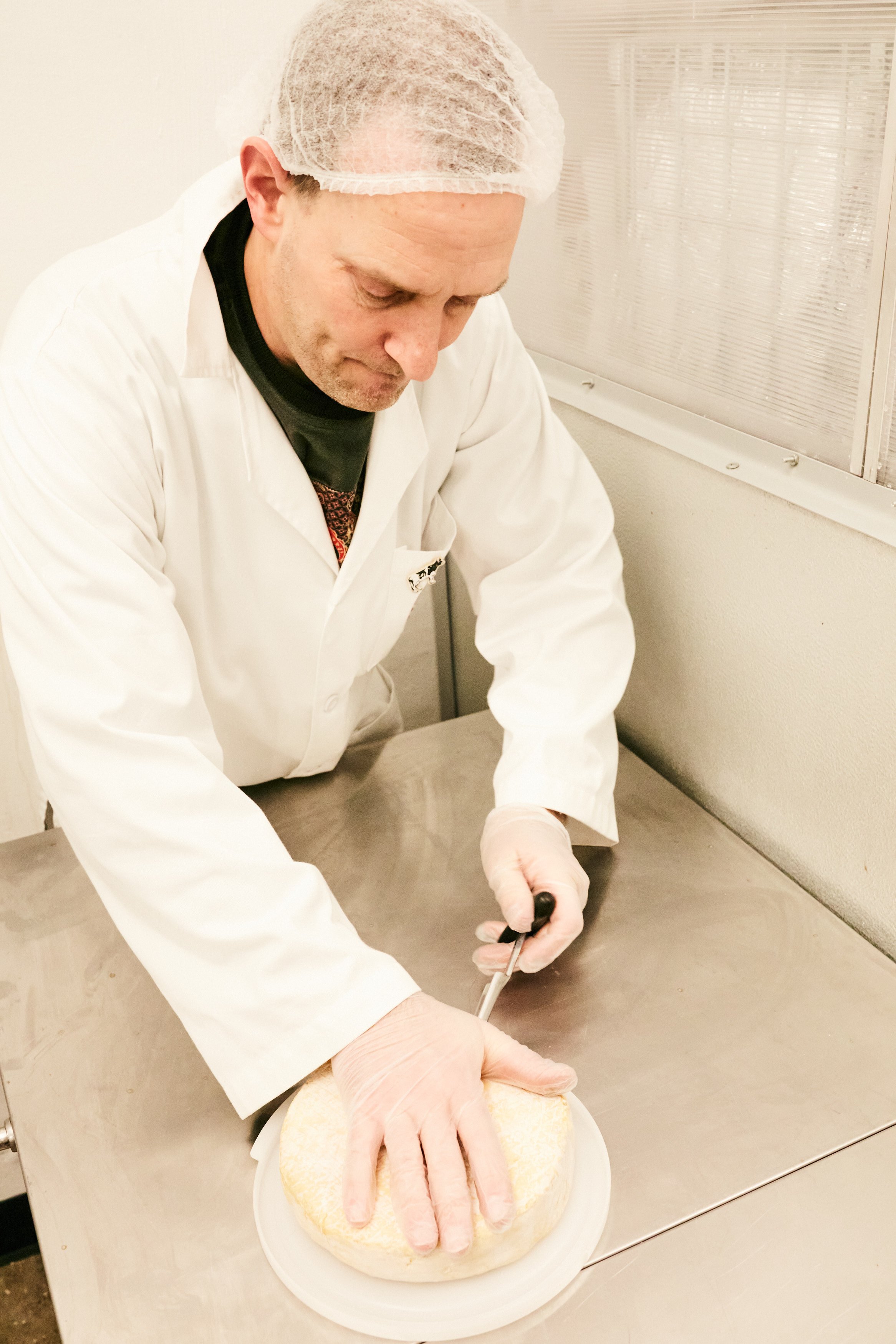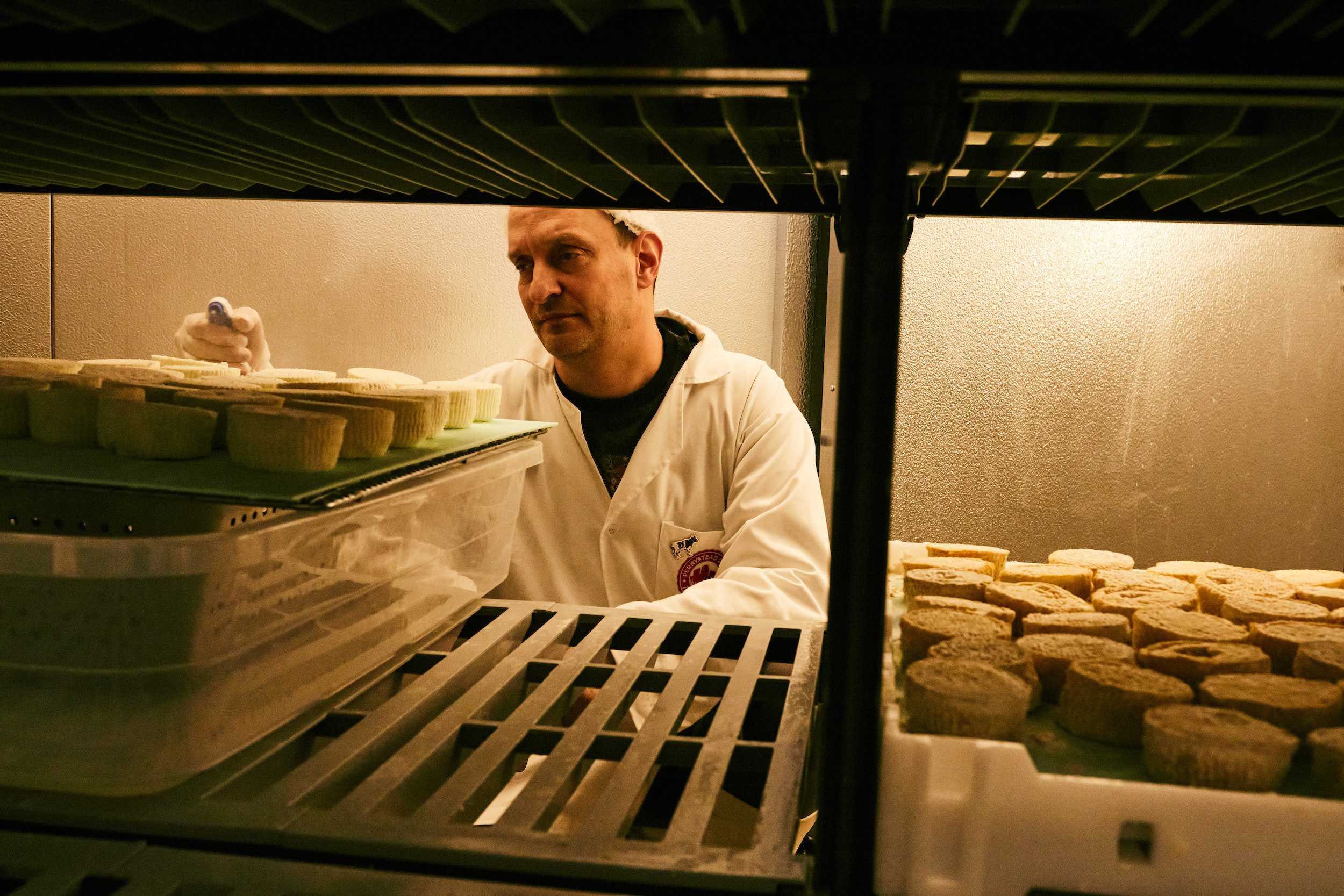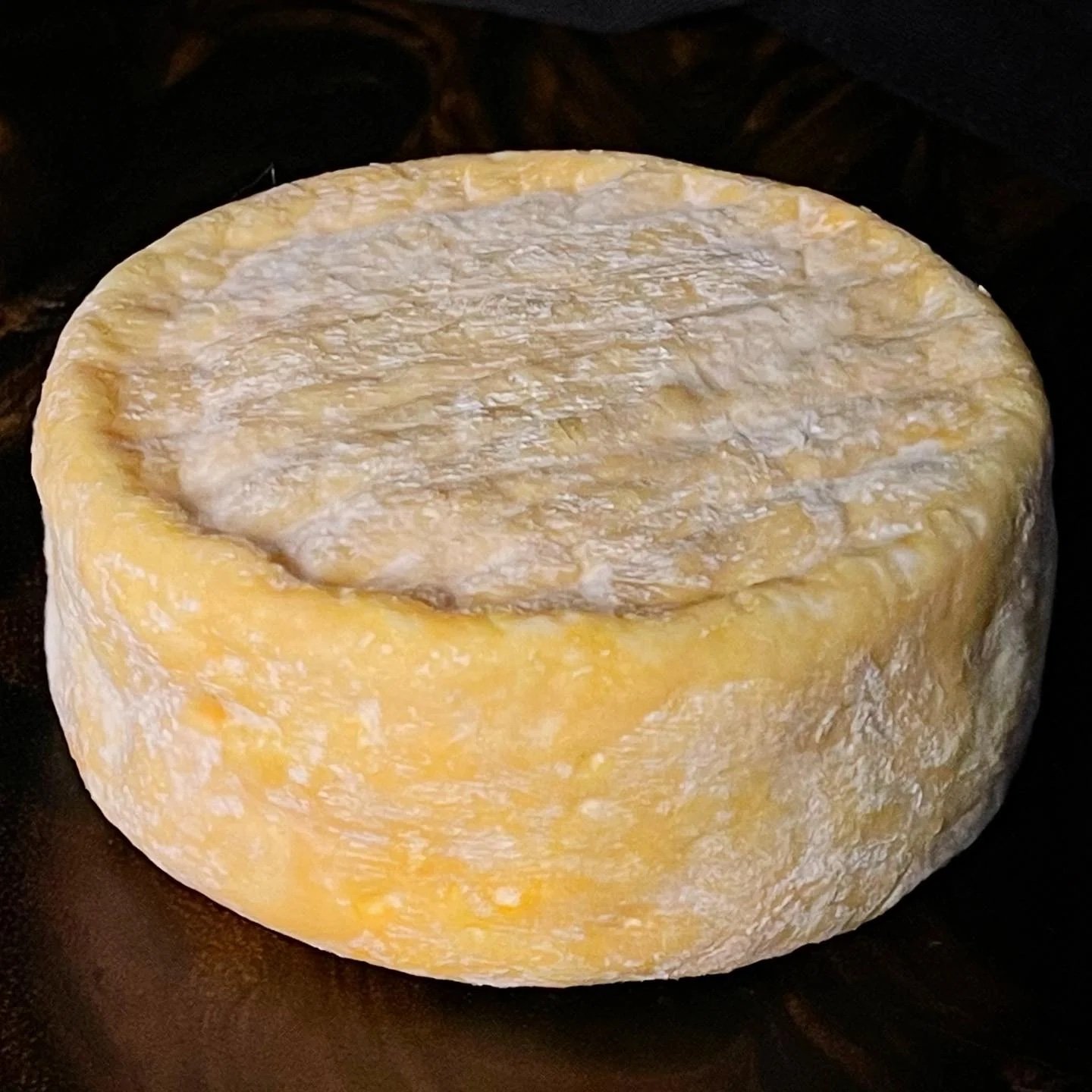How Perrystead Dairy is Supporting Family Farms from the City
Yoav Perry at Perrystead Dairy
Philadelphia-based Perrystead Dairy’s graphic red logo signals a clear message: pastures in the foreground, with an urban skyline in the background. For founder and celebrated cheesemaker Yoav Perry, this was always the intent for his operation: connecting dairy farmers in need of a consistent revenue stream with an urban creamery, one that could focus on cheesemaking in a location that could most easily connect the cheese with restaurants, stores, and consumers.
Perry cites a statistic that the number of Pennsylvania dairy farms decreased significantly from 2012 to 2018, losing some 1600 dairy herds before the pandemic made things even more difficult. “There was a sense that we were losing the small family farms that do right by nature, and by animals, and by people,” says Perry, “and I knew we could turn it around.”
Separating the Cheese from the Milk
Yoav Perry making cheese
Perry had been living and working in New York City, operating a dairy export and distribution business, and making cheese as a hobby. Understanding the plight of many family-owned rural dairies, he desired to create his own cheesemaking business that could enable farmers to earn a strong price for their milk without the added pressure and risk of the cheesemaking itself: “Cheesemaking isn’t necessarily in their wheelhouse,” says Perry, “but what they need is added value in their milk.” Perrystead’s website summarizes the solution that Perry recognized as being the most logical: “Our novel model is merely common sense for the 21st century: Support rural dairy farmers by paying them well for their hard work and excellent product and take the cheesemaking off their hands.”
He sought to pay dairy farmers a price that reflected the milk’s potential as high quality, artisanal cheese: “I thought, why don’t we just give them their value upfront?” says Perry. “Pay a premium price for the milk, as if they’ve already created the added value in the milk.” It’s a philosophy which acknowledges perhaps the most important truth about cheese: great cheese begins at the farm, with care of the animals and the pastures. You can’t make high-quality cheese without high-quality milk and allowing farmers to do what they do best — farming — is a way to ensure the highest potential quality on both sides of the equation.
A Philadelphia Creamery
Yoav Perry and aging cheese
Despite being a long-time resident of New York, Perry believes that Philly has ideal circumstances for his Perrystead Dairy. “Philadelphia is an incredible place, right in between that D.C. hub and New York on the I-95 corridor,” he says, making access to a wide range of East Coast restaurants and retail cheese operations seamless. Furthermore, he says, “we have great talent here, from package design to great restaurants, and we are surrounded by counties with a very long growing season and world-class dairy farming. That gives us immediate access to incredible milk that’s coming from less than 40 minutes away. It’s just the right place to do that.”
Yoav Perry at the dairy
With a grant from the Pennsylvania government dedicated to dairy reinvestment projects, Perry set up shop in Philly’s eclectic Fishtown-Kensington corridor, utilizing a repurposed shipping container as a cheesemaking facility. The property isn’t intended for public-access, especially given the delicate environment required for cheesemaking, but Perry is able to host market events in the front yard, on top of which he has easy access to important neighbors such as Di Bruno Bros, and Downtown Cheese at Reading Terminal Market. (Not to mention Mike Geno and Tenaya Darlington, who both live close by. I sense a Philly cheese pilgrimage may be in order.)
A Philly location also helped Perry create opportunities beyond the farm: “We can also support our community here in the city in an area that really needs the jobs and economic development,” says Perry.
Perrystead Dairy Cheeses
Moonrise
Operational since only 2021, Perry has already made a big splash in the cheesemaking community with his award-winning cheeses, including Intergalactic, a soft, lactic cow’s milk cheese coagulated with thistle rennet, Moonrise, a peanutty, pocket-size washed rind cheese, and Treehug, a fudgy, winter-seasonal, spruce-wrapped number. Not to mention The Real Philly Schmear, both superior to, and in tribute to Philadelphia Cream Cheese.
Much like his unique approach to developing an urban creamery, Perry’s cheesemaking style has been described as “renegade,” not relying on European models and blueprints for his original, distinctly American creations. “Cheesemaking to me is like a blank canvas,” says Perry. “First you just start drawing on it and then decide what your style of painting is going to be.”





